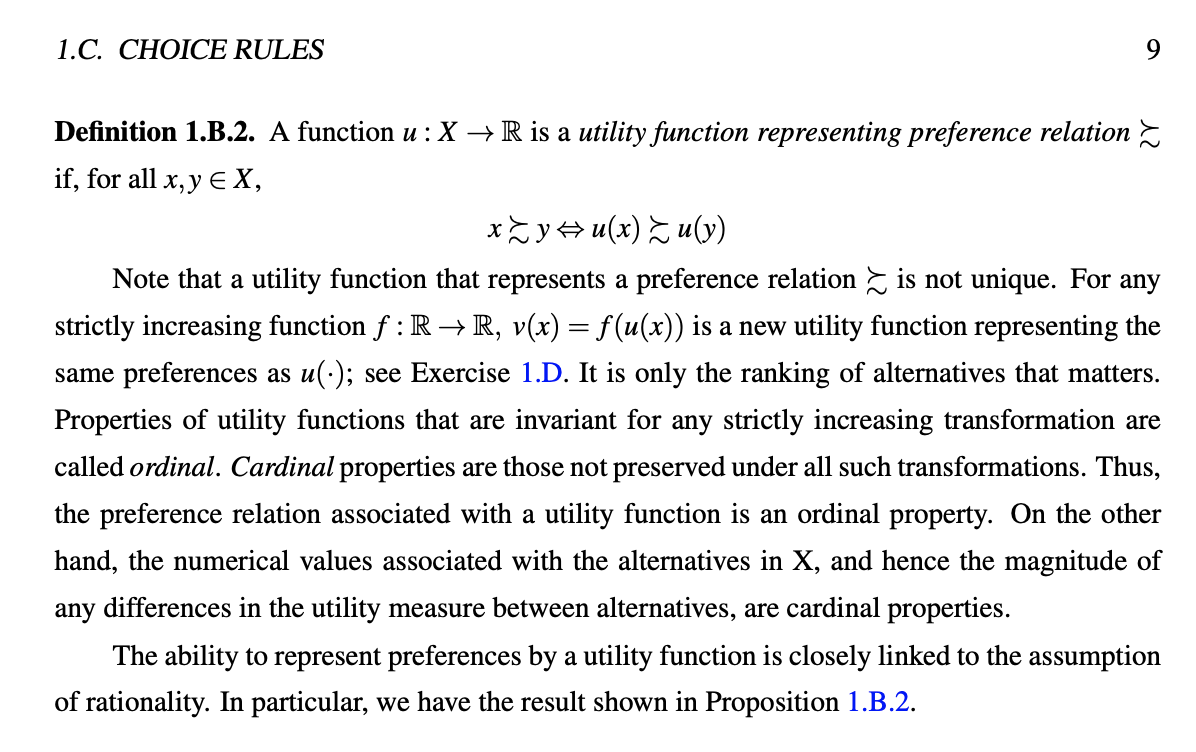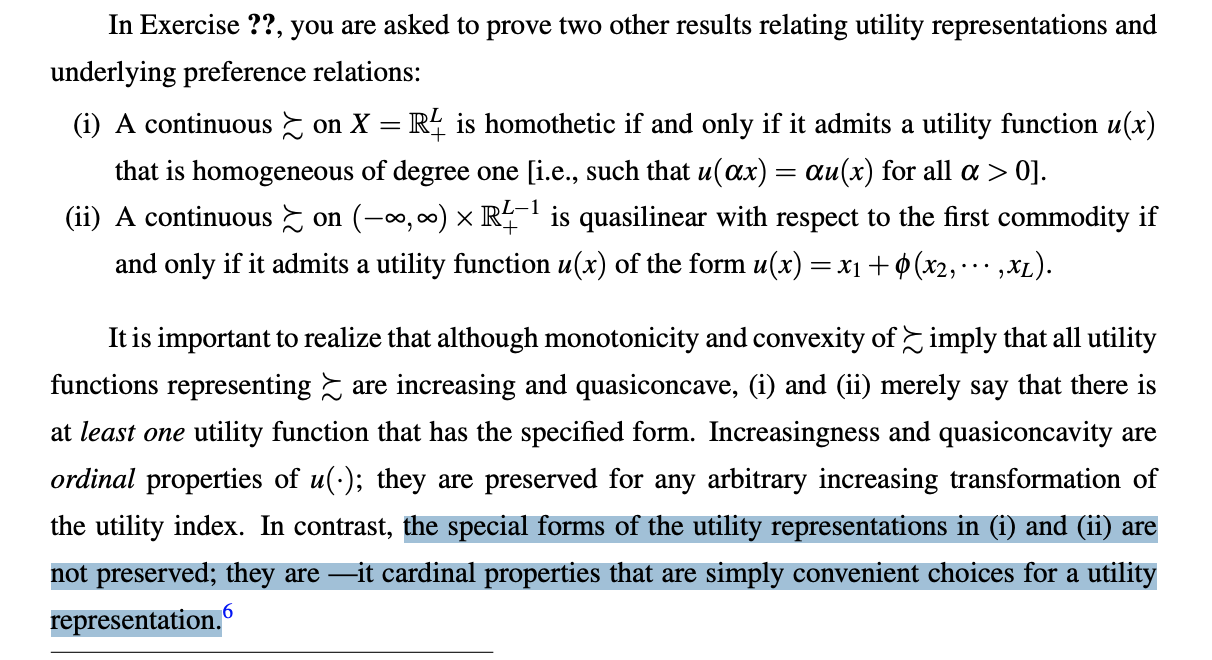@cshentrup i'm not offering any emotions. i'm just saying that it seems like neither of us have persuaded or are likely to persuade the other. your characterizations of me are similar to those i might offer of you, if i were less averse to being insulting. we won't resolve this controversy between us. perhaps if we debated before an audience it might be interesting who would be more persuasive to third parties. (as a thought experiment, i'm not proposing we do that.)
@cshentrup I agree. The preferences of the very wealthy become close to risk neutral, over ranges where the losses leave their wealth at very far from levels that would threaten their actual consumption amenities.
@cshentrup i'll guess we'll have to rely upon others to decide whose arguments have merit and whose have, um, less. You think you've got everything covered. I think your claims are quite unpersuasive. As I said when we began this conversation, we've had it before and I found it fruitless, and I think we now have again. I enjoy talking with you about other things!
@cshentrup billionaires do not actually behave, particularly in their policy advocacy, as though they might become paupers next year. and you and i won't give up our homes because someone needs surgery they have no insurance for, even though our own values (or your utility computations) would suggest perhaps we should.
@cshentrup that you don't acknowledge the merit of anything that challenges your worldview does not constitute evidence for your worldview. you are a strange beast to me, in that i think we agree a great deal in practice — i'm certainly glad your wife got her surgery rather than someone getting a house!, we both advocate approval voting. but at a theoretical, especially epistemological, level, we are on very opposite poles.
@cshentrup you are asking people to conduct a thought experiment in which they don't know anyone's identities. when they do know identities, they value their own houses over other people's surgeries all the time. i like your (harsanyi’s, rawls') hypothetical! i think it encourages people to be better, to not privilege people by their identities. but none of us lives up to it, and the market system you admire signally weights welfare by purchasing power. it is not incontestable.
@cshentrup we very much disagree about who is making novice errors. but i'd not ordinarily use words like that, and don't like doing it even here, because it's hardly constructive.
@cshentrup i read your post. it's fine. it argues we should ignore actual utilities as they might exist as a positive, real-in-the-world concept that differs between people, because if we conduct a veil of ignorance thought experiment, we couldn't weight on individual differences. it's a conclusion i agree with, and a fine way to get their, but hardly beyond contestation.
@cshentrup again, i will say that i think some of your views could be much better thought-out and developed (and i think the scientism you pretend to, that there are true correct answers to social questions independent of values is quite destructive in practice), but i don't see the purpose of insulting people, even if i disagree with them, think little of their views, think their views counterproductive in social and political affairs.
@cshentrup the objective data is she would die without the operation (i hope she is well!) while others might use the same million to buy a new house. but there is no science that can tell you that her (wonderfully) continued existence creates more "utils" than some particular person's new house. it's a choice about interpersonal values i agree with, but i can't fall back to some empirical science to make for us. we have to make it.
@cshentrup your piece describes a normative point — one that i agree with ( and have written about https://www.interfluidity.com/v2/5486.html )
as a matter of policy, it does not matter, to me, that perhaps you are a "utility monster" and giving you a chocolate perhaps from some neurological or whatever perspective gives more pleasure than my basic bread gives me. 1/
@cshentrup in something like the harsanyi thought experiment, i'll simply argue that as a normative matter, when we model policy, we should treat one another as having the same preference (over broad aggregates like money or access to health care, not over chocolate vs vanilla).
but that is an axiom. there's is no empirical data or fact about the world that justifies the choice. it is not "empirical". it simply reflects my (and i suspect your) egalitarian values. /fin
@cshentrup i'll take a look, but again i don't understand the role you see for leavening your remarks with insults. is there some theory i am not understanding that renders the insults productive?
@Loungeiguana @phillmv @adamserwer (it was the context that made the post interesting; i really should have described that context, since most people probably don't know very much about compactmag and Lind. i'm sorry again.)
@cshentrup it means you can't talk about utils as a quantity. if we let U=log(c) and c=100, we might as well have said U=100 log(c). you might argue that this is just a change in units, ie Fahrenheit is just an affine transformation of degrees Kelvin. but the substantive point is that you can't compare interpersonally. there is no way i can define U so that 10 utils of Jane's utility is worth the same as 10 utils of Joe's. there's no way to calibrate across people.
@Loungeiguana @phillmv @adamserwer i probably should have warned that one. i'm sorry about that.
@cshentrup to say that people behave as if they are maximizing cardinal utilities is tautological, because you can always assign utilities consistent with the behavior you observe (at least if you are sufficiently fine-grained in the inputs you accept or permit time-varying preferences).
@cshentrup from Mas-Colell, the preeminent textbook in microeconomic theory (very expensive, but hey there's a pdf just sitting there) http://www.hawkinqian.com/uploads/media/2014/09/Microeconomic_Theory.pdf
@cshentrup "the preference relation associated with a utility function is an ordinal property"
here's another screenshot, same PDF (this PDF appears to be a draft of an edition, since we see Exercise ??), "the special forms of the utility representations in (i) and (ii) are not preserved; they are —it cardinal properties that are simply convenient choices for a utility representation."
@cshentrup when I was taught this stuff, I was taught that utility functions are equivalent across affine transformations, ie given a utility function U(c), any function of the form a(U(c)) + b represents precisely the same preferences.
@cshentrup who knows? maybe neuroscience will find something like a value that corresponds to the utility functions we've imputed to try to summarize and predict behavior. or maybe not. in either case, utility functions long predate any such discovery. they are things we invented and impute because it's been a fruitful approach to summarizing and predicting behavior.
@cshentrup no one "believes in" ordinal utility, because utility is not a thing in the world, but a way of organizing models that are intended to explain and predict behavior.
no one publishes models based on cardinal utility.
@cshentrup why do you think it helps a conversation to insult people?
i wish you were right, that economics as a discipline were more open to cardinal utilities. i think it was broadly an error to insist upon ordinality (an error made bc the profession wished to be scientistic in the way that you also wish to be, to be able to offer authoritative statements independent of values). but take a course in microeconomics and you will learn the contemporary consensus remains utility must be ordinal.

